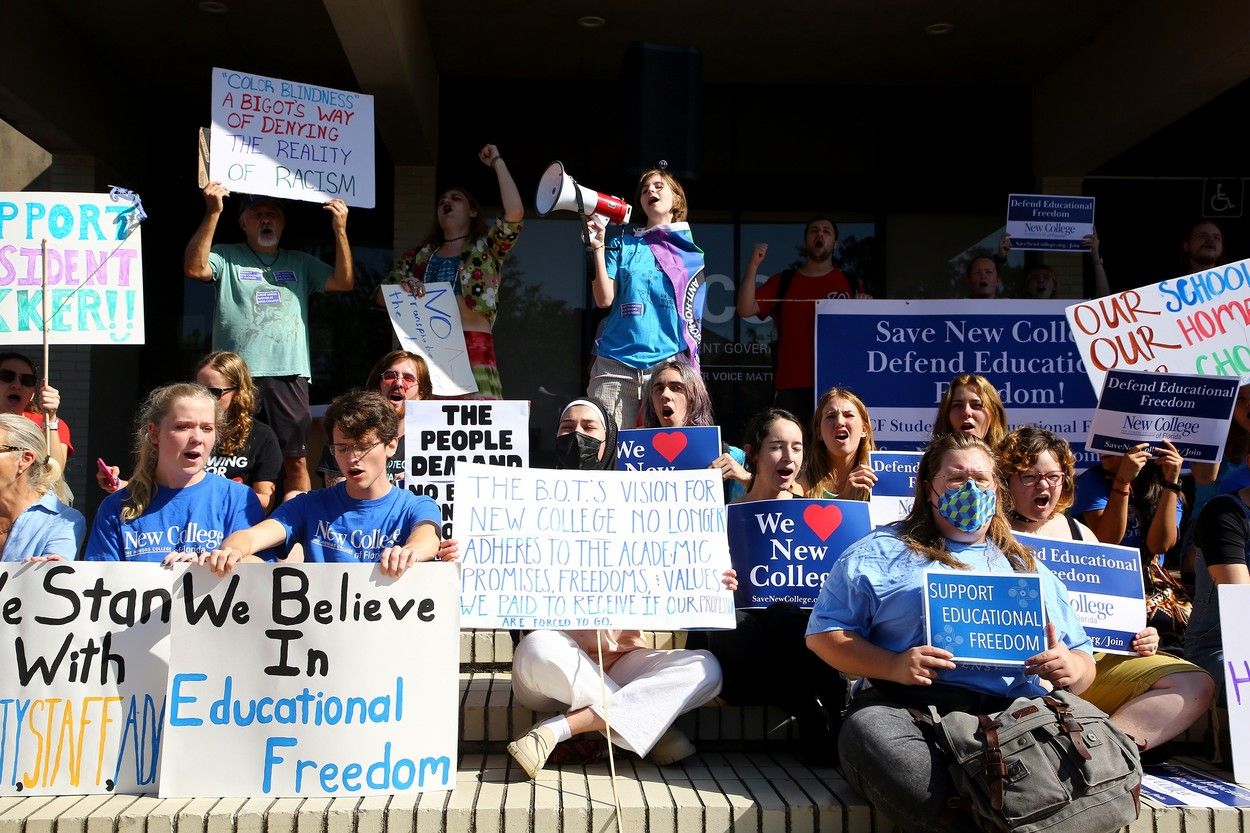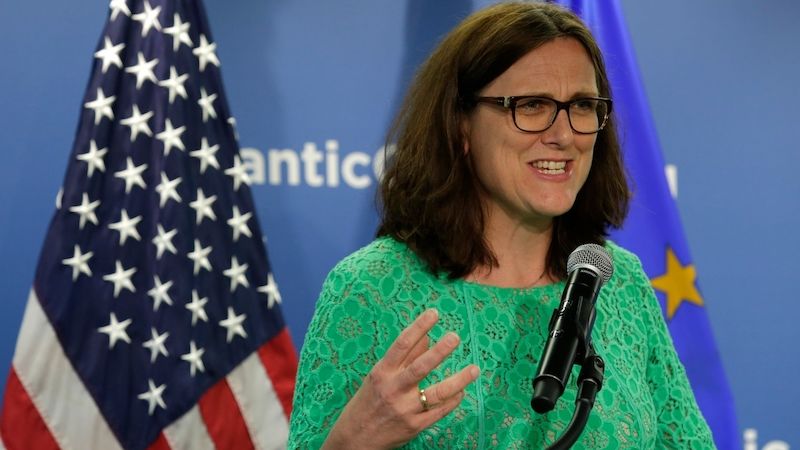When kids in Florida returned to school after the Christmas break, they got a surprise in their class. Shelves that were previously full of books are now empty or covered with white paper. In U.S. states, laws limiting the titles children can borrow went into effect last year. However, since the New Year, the school has accepted clearer rules. Teachers face fines and up to five years in prison.
Law No. 1467, which came into effect last July, mandates that textbooks in schools must be age-appropriate and must not contain pornography. Books must be approved by a qualified school specialist who has passed state retraining.
For a long time, it was unclear what exactly the law required in practice and what else teachers could afford. Some of them had not lent children books for the last six months, others were more lenient. In addition, the Florida Department of Education didn’t start this training until this year, leaving librarians statewide unable to order new books for over a year.
The ministry has also only now determined the interpretation of the law and the fact that it follows older laws, according to which teachers face severe punishment, added Sword The Washington Post.
“Children started crying and wrote letters to the headmaster saying: ‘Please don’t take our books, don’t do this,'” describes the situation at one school, librarian Marie Masferrerová. In the United States of America there is no extensive network of public libraries, so students often borrow books from schools. Both at the local library and directly from the teachers who bought them with their own money and put them on the “class bookshelf”.
“I have a few hundred books in my class. Former students still tell me they love going to my class because I have lots of shelves with classics, books on history, books on government – pretty much anything they want,” he told servers Business Insider Don Falls, a high school teacher in Manatee County on Florida’s west coast, has now covered the shelves.
If he tries to get all of his books approved, it will take several weeks, including filing. So far, there are only about 800 titles on the list of allowed publications, and many of them are missing from Falls shelves, including biographies of American presidents or volumes by Voltaire. But they are gradually increasing.
“To me, this is like Big Brother looking over our shoulders. This is a violation of our First Amendment rights — our right and our students’ right to free speech,” thought Falls. That’s why he decided to challenge the law in court.
Falls believes the law makes things difficult for teachers who have to be careful about what they do in class or what subject matter they offer students. “The essence of education is to acquire knowledge. To attract children to knowledge, to make them read, to make them think. That’s why it’s very, very sad,” he added.
He preferred to hide his books now so he wouldn’t have to pay a fine of up to five thousand dollars (converted to 109 thousand crowns) or go straight to jail. However, he admitted that he could not say no to children.
“A boy came up to me and said he was interested in some presidential resumes. He asked me for a recommendation and I took him next door to a colleague because he had better options. Even though it wasn’t allowed, we gave boys those are some resumes,” he admits. “We basically abandoned the whole thing because the kid wanted to read.
Marxism and Intersectionality
Curb literature isn’t the only recent intervention in Florida education. In American states this year, they also temporarily banned the subject of African-American Studies from being taught in a more detailed form, because according to legislators it supports radical ideas. The contents must be changed.
The courses, which will be taught in several dozen high schools, are on history, literature, philosophy, and geography. The goal is to provide students with context for other subjects. But the State Ministry of Education has problems especially with more modern teaching materials.
In its justification, it mentions, for example, two activists: Angela Davis, a professor at the University of California, because she is “an avowed communist and Marxist”. And Kimberlé Crenshaw, a law professor at Columbia University who is “known as a founder of intersectionality,” according to authorities. Intersectionality deals with various kinds of discrimination in society.
It also started paying in the states last year law, which prohibits discussing differences in sexual orientation or discussing gender in schools. Politicians in power want LGBTQ+ topics to be discussed with children by their parents, when they deem it appropriate, and not exposed to them in any way in schools.
“We will never give in to an ‘awakened’ crowd,” Republican Gov. Ron DeSantis said in his inaugural address earlier this month. “Florida is a place where the ‘wake’ is dying,” he added, referring to the progressive currents in society.
Like fascism
But some teachers and school board members say they don’t understand how the new law will help students. The vague rules themselves just make them extremely cautious and prefer not to discuss certain topics with students at all.
Older teachers, on the other hand, objected that many of their younger peers might give up and leave to teach in other American states. This is a big problem, especially at a time when Florida is facing a teacher shortage.
“In addition to the erosion of traditional community education, I feel there is an erosion of democracy,” he says as well as Jessica Vaughn, a member of the school board at Tampa High School.
“When you decide that teachers can’t teach history, or they can’t have inclusive classrooms that support all students, or you don’t want to teach about something like socialism – even though that is a form of government and everyone should be taught about it – then I don’t understand how it differs from fascism,” he added.

“Tv nerd. Passionate food specialist. Travel practitioner. Web guru. Hardcore zombieaholic. Unapologetic music fanatic.”







